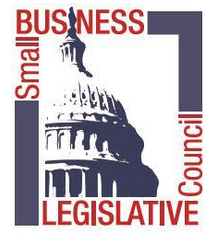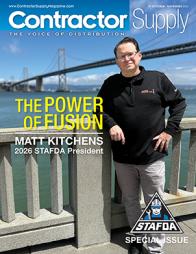SBLC issues proposals for next wave of COVID relief for small businesses
Proposal includes protection from COVID-related lawsuits and expanding the Paycheck Protection Program.
 The Small Business Legislative Council (SBLC), which represents the interests of more than 50,000 member companies and trade groups including STAFDA and its member companies, has released a list of recommendations to be considered as parts of the coming legisative package of COID relief for small business operators across the United States.
The Small Business Legislative Council (SBLC), which represents the interests of more than 50,000 member companies and trade groups including STAFDA and its member companies, has released a list of recommendations to be considered as parts of the coming legisative package of COID relief for small business operators across the United States.
Here is the text of that letter of proposal:
July 16, 2020
House Committee on Ways and Means 1102 Longworth House Office Building Washington, D.C. 20515
Dear Chairman Neal, Ranking Member Brady, and Honorable Members of the House Committee on Ways and Means:
I write on behalf of the Small Business Legislative Council (SBLC) which, through its association members and their members, represents more than 50,000 businesses across all sectors of the economy. As you negotiate the next legislative package to address the ongoing crisis caused by the Coronavirus, we hope that you will consider the following proposals to assist small businesses and their employees on the road to recovery and help small businesses retain their role as the backbone of our economy. These proposals were developed based on a survey of the more than 40 trade associations that comprise SBLC’s permanent coalition.
- Establish carefully crafted liability shields for re-opening businesses that comply with CDC, OSHA and/or local requirements to prevent against COVID-19 related lawsuits from employees, customers, clients or patients. Specifically, in the absence of an allegation of gross misconduct or intentional wrongdoing, the SBLC urges Congress to establish a safe harbor for businesses that comply with applicable federal and/or state public health requirements. Unfortunately, contracting COVID-19 remains an inherent risk to daily life. Allowing lawsuits against businesses that have done their due diligence and taken all required precautions to prevent the spread of COVID-19 will severely hinder efforts to restart the economy. Also, businesses, particularly small businesses, need guidance on what their role is with respect to contact tracing.
- Expand the Paycheck Protection Program to allow small 501(c)(6) organizations to obtain PPP loans and provide automatic loan forgiveness for loans under a certain threshold (the SBLC would suggest $250,000).
- Restore the business deductions eliminated by the Tax Cuts and Jobs Act, including the deductibility of business meals, entertainment expenses and parking. This will free up needed cash for small businesses.
- Make permanent and expand the 199A deduction established by the Tax Cuts and Jobs Act by significantly increasing the threshold level and eliminating the limitations applicable to specialized service businesses.
- Provide tax incentives for small businesses to offset the cost of deep cleaning their facilities and providing PPE to their employees.
- Increase infrastructure funding and use investment in infrastructure as a means of jumpstarting economic investment and creating more job opportunities. The lack of adequate infrastructure funding is an issue that has long preceded the Coronavirus and that continues to have broad impacts across the economy. With the funding for key infrastructure programs set to expire, the SBLC urges Congress to include enhanced infrastructure funding in the larger discussion and priorities to set the country up not only to recover but to improve.
- Eliminate the cap on the State and Local Tax (SALT) deduction in order to boost small businesses in the real estate, construction and mortgage banking areas that are located in the areas most affected by the cap.
- Exempt non-public businesses with below a certain number (such as 100) of shareholders, members or partners or with annual gross receipts below a certain threshold (such $10,000,000 indexed) from Internal Revenue Code Section 409A. 409A was designed to stop public companies like Enron and Tyco from manipulating deferred compensation to avoid creditors and obtain lower tax rates but applies to all businesses. This has caused small businesses to expend significant time and money to ensure compliance while not achieving any meaningful national policy goal. Exempting those small businesses that 409A was not intended to target will help free up necessary funds for these business as they recover particularly if there is an uptick in mergers and acquisitions in the turbulent months ahead.
- Allow small business non-C corporation owner-employees to participate in their own employer-based plans such as cafeteria plans. Technically this would mean to have 401(c) “owner-employee” language added to IRC sections 79, 104, 105, 106, 125, 129 and 132. Allowing owner-employees to participate in such plans, will encourage more small businesses to offer these meaningful benefits to their employees at a time when they will need them the most.
- Simplify the 401(k) discrimination tests and make them easier to pass without having to adopt the safe harbor and eliminate the obsolete and complicated top- heavy rules to make it easier for small businesses to administer their own plans and reduce fees to professional advisors.
-
Relax the rules dealing with mortgage interest by allowing interest to be deducted over the $750,000 mortgage balance and increase the mortgage limit from $1 million to $1.5 million. These changes will help the real estate and mortgage banking industries which in turn will help countless small businesses.
The SBLC is a non-partisan, independent and permanent coalition of forty national trade and professional associations whose goal is to maximize the advocacy and presence of small and privately owned businesses on federal legislative and regulatory policy issues, and to disseminate information on the impact of public policy on small businesses and closely held businesses, including family owned businesses.
We thank you for your consideration of these proposals and stand ready to provide any additional information or assistance that you or your staff may require.
Sincerely,
Paula Calimafde
President and General Counsel
















